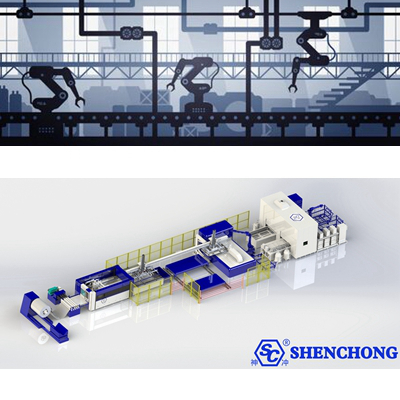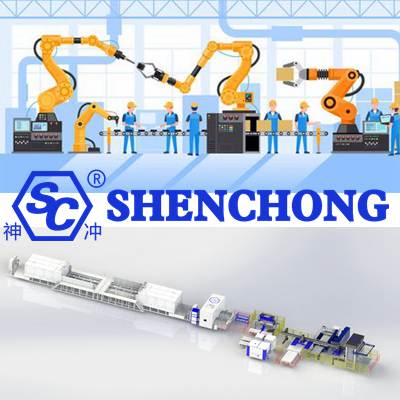
Industrial automation is the trend of widely using automatic control and adjustment devices in industrial production to replace manual operation of machines and machine systems for processing and production. Under the conditions of industrial production automation, humans only indirectly take care of and supervise machines for production.
Industrial automation is one of the important prerequisites for Germany to launch Industry 4.0, mainly in the fields of mechanical manufacturing and electrical engineering. Industrial automation technology, as one of the most important technologies in the modern manufacturing field of the 20th century, mainly solves the problems of production efficiency and consistency. Both high-speed and large-scale manufacturing enterprises and those pursuing flexibility, flexibility, and customization must rely on the application of automation technology.

Industrial automation is a collective term for information processing and process control of machine equipment or production processes that achieve measurement, manipulation, and other expected goals without the need for direct human intervention. Automation technology is the exploration and research of methods and technologies for implementing automated processes. It is a comprehensive technology that involves mechanical, microelectronic, computer, machine vision and other technical fields.
The Industrial Revolution was the midwife of automation technology. It was precisely due to the needs of the industrial revolution that automation technology broke through the eggshell and flourished. At the same time, automation technology has also promoted industrial progress. Nowadays, automation technology has been widely applied in fields such as mechanical manufacturing, electricity, construction, transportation, and information technology, becoming the main means to improve labor productivity.
Semi automation refers to the partial use of automatic control and automatic devices. The other part is produced by manually operated machines.
Full automation refers to all processes in the production process, including loading, unloading, loading and unloading, which do not require direct production operations by humans. People only indirectly monitor and supervise the operation of machines. And the machine continuously and repeatedly produces one or a batch of products automatically.

Industrial automation technology is a comprehensive high-tech that utilizes control theory, instruments, computers, and other information technologies to detect, control, optimize, schedule, manage, and make decisions in industrial production processes, achieving the goals of increasing output, improving quality, reducing consumption, and ensuring safety. It includes three major parts: industrial automation software, hardware, and systems.
Industrial automation technology, as one of the most important technologies in the modern manufacturing field of the 20th century, mainly solves the problems of production efficiency and consistency. Both high-speed and large-scale manufacturing enterprises and those pursuing flexibility, flexibility, and customization must rely on the application of automation technology.
Automation system itself does not directly create benefits, but it plays an obvious role in promoting the production process of enterprises.
(1) Improve the safety of the production process
(2) Improve production efficiency
(3) Improve product quality
(4) Reduce the consumption of raw materials and energy in the production process
According to statistics from international authoritative consulting agencies, the ratio of investment in automation systems to enterprise efficiency improvement is approximately 1:4 to 1:6. Traditional industrial automation systems, also known as mechatronics systems, mainly control equipment and production processes. The industrial automation system or product is composed of hardware elements such as mechanical body, power part, testing sensing part, execution mechanism, driving part, control and signal processing unit, interface, etc., which are coordinated, organically integrated and integrated with each other under the purposeful information flow guidance of software programs and electronic circuit logic, forming an orderly and regular movement of matter and energy.
In the field of industrial automation, traditional control systems have gone through the development process of base type pneumatic instrument control system, electric unit combination analog instrument control system, centralized digital control system, and distributed control system DCS.
With the development of control technology, computer, communication, network and other technologies, the field of information exchange and communication is rapidly covering various levels from the on-site equipment layer of factories to control and management. Industrial control computer system generally refers to the general term for automated technical tools (including automatic measuring instruments and control devices) that measure and control industrial production processes, their electromechanical equipment, and process equipment.
Today, the simplest understanding of automation has also shifted to using generalized machines (including computers) to partially replace or completely replace or surpass human physical strength.
The advantages of industrial automation are reflected in improving production efficiency, reducing production costs, improving product quality, improving employee safety, and supporting sustainable development of enterprises. By introducing automation technology, enterprises can operate more efficiently, maintain a competitive advantage with competitors, and achieve higher success in the market.